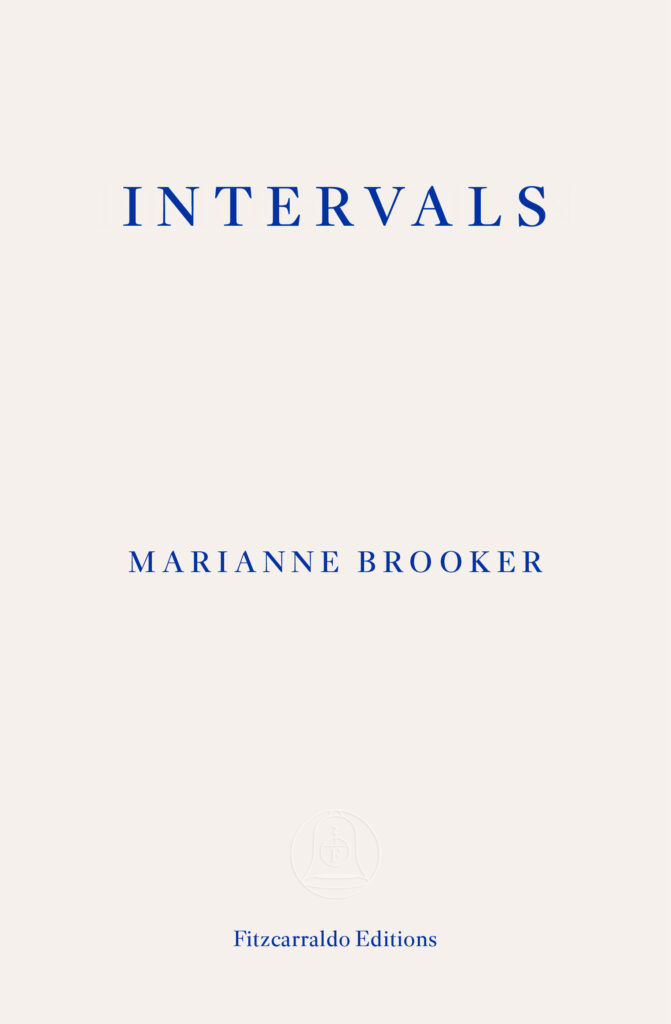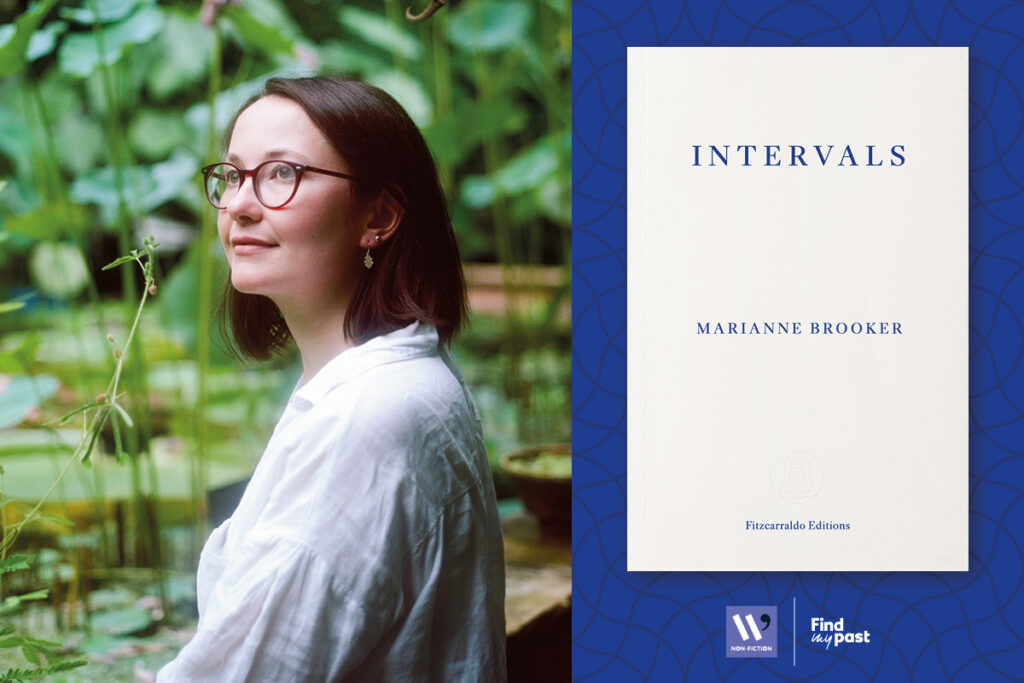Intervals by Marianne Brooker reckons with heartbreak, weaving her first and final memories with a study of the precarious economics of social, hospice and funeral care.
Longlisted for the 2024 Women’s Prize for Non-Fiction chair of judges Professor Suzannah Lipscomb had this to say about the book: ‘This is an important, harrowing book that is moving and thought-provoking on the issue of assisted dying. It is a work of both activism and memoir, written in haunting prose.’
To find out more about the book we spoke to Marianne about her writing, research and current reads.

Describe your book in one sentence as if you were telling a friend.
Intervals explores the politics of choice, care and creativity under austerity through the intimate story of living with my mum as she hastened her death.
Did you have any revelation moments when writing your book? When the narrative and your objectives all fell into place?
Unusually for me, the overarching narrative was relatively fixed, relatively early. In a crazy-professor moment, working on the proposal, I stuck a large piece of paper to my bedroom wall and mapped a timeline of events onto an arc of ideas I wanted to explore. The revelations came later, in red-hot bursts of drafting and in the slow chisel of editing. I already knew, beginning the book, that I think through writing, but it came as a revelation to me that I could feel through it, too.
What is the one thing you’d like a reader to take away from reading your book?
I worried for a long time that Intervals was – at least in part – too heavy, or too hard. But early readers told me it was full of love. I’d like others to feel that too: it’s a book about the varied and contradictory nature of love and living together.
Which other female non-fiction writers inspire you and why? Any particular title?
So many! Working on Intervals, I was inspired by people who write from and beyond their own lives, and the systems of oppression in which we’re entangled, to imagine a better world: Christina Sharpe, Sara Ahmed, Lola Olufemi, to name a few. I return again and again to Anne Boyer’s The Undying. Writing from a place of gratitude and vengeance, her work has helped me to ‘imagine love’s larger form’, never without its politics.
What is the best piece of writing advice you have ever received?
During a workshop, another writer read a piece I’d written and asked me where I was writing from (what place, what moment, what condition). Despite writing in the first person, I didn’t know how to relate to what I was depicting, so how could a reader? Better understanding my proximity to the people and ideas in the book helped me – paradoxically – to hold them at a greater, safer distance. So I’d offer that same question to others early in their writing process: where are you writing from?
What book is currently on your nightstand?
Hannah Regel’s excellent forthcoming novel The Last Sane Woman, which I feel was written very specifically for me, lurking in feminist archives and struggling to make things.








